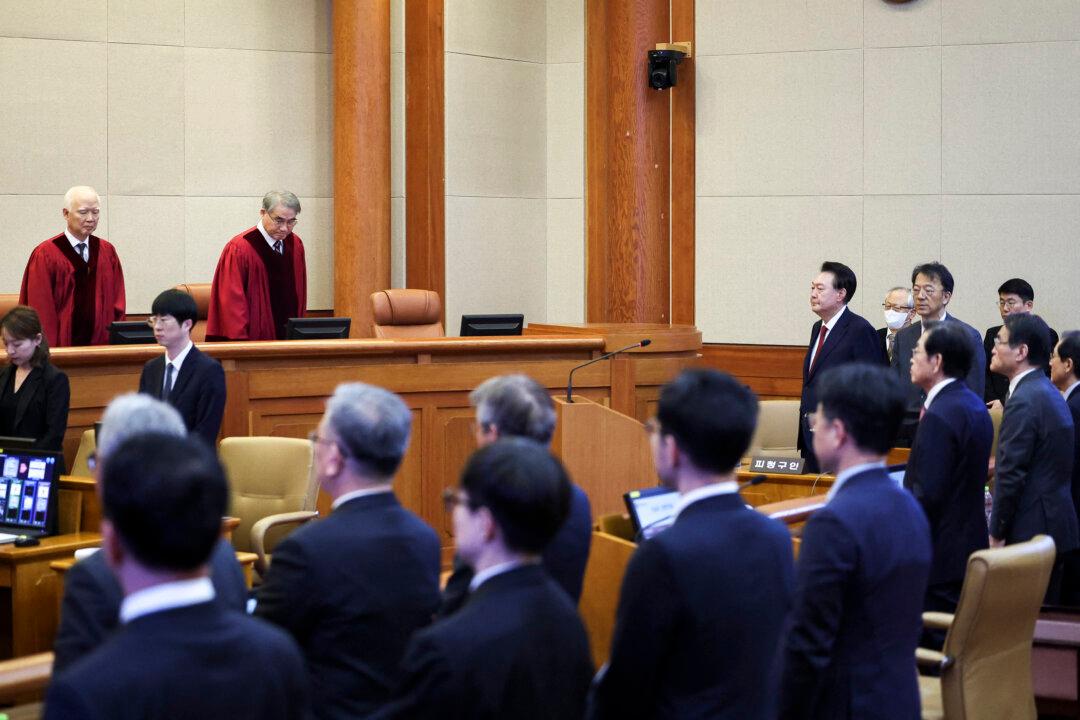Suspended South Korean President Yoon Suk Yeol appeared before the Constitutional Court for the first time on Jan. 21, denying allegations that he had ordered military commanders to forcibly remove lawmakers from the National Assembly during his brief declaration of martial law.
Yoon arrived at the court in a correctional service vehicle from the Seoul Detention Center in Uiwang, South Korea, south of the capital, where he has been detained since last week.




